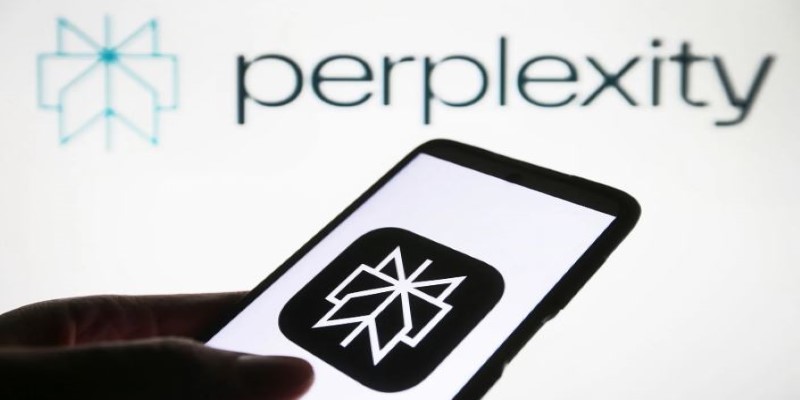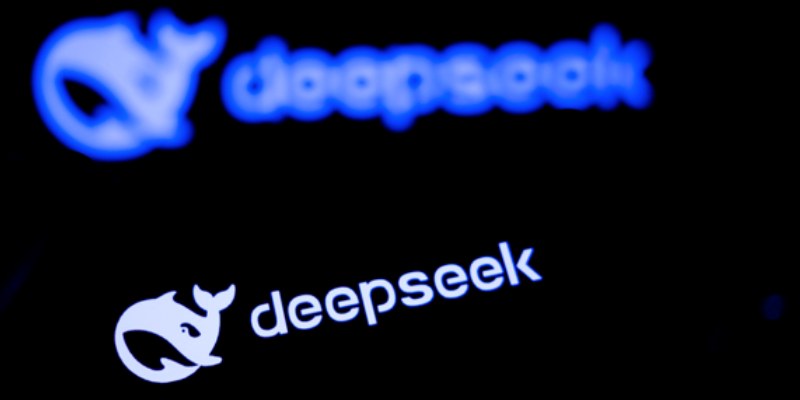Advertisement
For years, search engines mostly meant Google. That's changed. The way people search is shifting as AI becomes more natural in how it interacts and retrieves data. AI search engines aren't just about links—they summarize, reason, predict, and understand intent. In 2025, these tools will become the go-to choice for people who want answers, not pages. Whether you're looking for technical documentation, creative ideas, or real-time insights, these AI search engines are built to serve faster, smarter responses. Here's a closer look at the top 10 options changing how we search in 2025.

Perplexity is gaining serious attention for its real-time answers backed by source links. It doesn’t just summarize websites—it reasons through context. Ask it something technical, and it pulls from the latest research, developer forums, and trusted documentation. Its "Copilot" feature allows follow-up questions in a thread, keeping the flow of the conversation. Its ability to explain things in plain language separates it from traditional search. Instead of links to sift through, you get a direct answer that sounds more like a conversation than a query.
You.com combines generative AI with a plugin-based structure that gives users more control. Depending on what you're doing, you can switch between different search modes, such as private Search, AI chat, and app integrations. It's good for quick lookups, technical coding help, or writing assistance. It also pulls results from Stack Overflow, Reddit, and GitHub. This layered result format makes it less of a link machine and more of a workspace that answers, writes, and suggests without leaving the page.
Microsoft's AI push is anchored in Bing's evolution. Powered by OpenAI's GPT-4, Bing AI is now a contextual assistant inside Edge browser tabs. It understands webpage content in real time and offers summaries, code fixes, or key takeaways in your sidebar. It works well for research-heavy tasks and casual questions alike. The fact that it's embedded into your browser makes it feel more like part of your workflow than a standalone search engine. It still returns links but adds AI-generated summaries that reduce time spent scanning pages.
Google’s integration of generative AI into its search results was inevitable. In 2025, its SGE feature will be rolled out widely. Search results now come with AI-written summaries at the top, blending traditional results with context-aware answers. Google's strength is data reach. It knows what people look for and how they phrase things. SGE uses this to predict user intent better than most. It's especially useful for comparing products, summarizing news, or understanding complex subjects quickly. While it still leads with links, the AI layer on top smooths the whole process.
Andi is designed for people who want clean, focused answers without ads or tracking. It's visual, minimal, and uses real-time AI reasoning instead of keyword matching. Unlike traditional search engines, Andi doesn't rank websites—it explains. It's good at summarizing long articles, defining complex terms, or helping with homework-style questions. It's also tuned for visual learners, offering charts or images when needed. The experience is fast, private, and easy to understand, especially for users tired of overloaded search pages.
Komo is focused on privacy and simplicity. It uses a natural language interface and generative summarization to answer questions without distractions. While it’s not as broad in scope as others, it excels at personalized Search and learning-based interactions. Komo is being adopted by students and researchers who need focused, fast facts. It has no ads, no history tracking, and supports anonymous use. Its clean interface keeps users returning—there's no clutter or clickbait, just answers.
Though Neeva shut down its public Search, its core technology continues as part of Snowflake's enterprise AI tools in 2025. It powers internal Search across files, chats, and documents, offering fast summaries, pattern recognition, and predictive suggestions. Designed for internal company use, it brings Google-like functionality to private data without exposing it externally. While no longer available to general users, it stands out in enterprise environments for its speed, accuracy, and ability to handle complex internal search needs.

Brave Search runs on its index and adds AI summarization for clearer results. It's a privacy-first engine with no tracking, making it a top choice for users who want speed and control without giving up data. Its summarizer gives condensed answers above the traditional results, which is helpful when you want a quick overview before diving deeper. Brave is also rolling out a feature that lets users verify AI summaries against their sources, building more trust.
Phind is tailored for developers, offering fast, accurate answers to technical questions without digging through long documentation. Whether it's debugging Python errors or optimizing SQL queries, Phind provides working code and clear explanations. It pulls from open-source repositories, tech blogs, and official docs. For engineers and coders, it’s one of the most efficient AI search engines of 2025, cutting hours of research into minutes with real-time answers.
Aria, Opera’s built-in AI search engine, blends chat and live web results directly in the browser. It delivers real-time answers while you browse or highlight text, making it useful for students, travelers, and researchers. Powered by OpenAI and Opera's tech, Aria easily handles multilingual queries. It's especially helpful for dynamic searches like spotting recent updates or filtering discussions without switching tabs, keeping the experience fast and focused.
AI search engines in 2025 go beyond keyword matching. They offer fast, personalized, and context-aware responses. These tools understand user intent, whether you're coding, researching, or catching up on trends. Instead of wading through pages of links, users now get direct, useful answers. With a growing focus on privacy, design, and real-time answers, Search feels more like a conversation than a task—tailored to your thoughts, not just what you type.
Advertisement

How to fine-tuning small models with LLM insights for better speed, accuracy, and lower costs. Learn from CFM’s real-world case study in AI optimization

Explore FastRTC Python, a lightweight yet powerful library that simplifies real-time communication with Python for audio, video, and data transmission in peer-to-peer apps

Learn how business leaders can measure generative AI ROI to ensure smart investments and real business growth.

LG introduces its Smart Home AI Agent, a mobile assistant designed to streamline household management by learning your routines, automating tasks, and syncing with smart devices

DeepSeek's data practices spark global scrutiny, highlighting the tension between AI innovation, privacy laws, and public trust

Explore 8 clear reasons why content writers can't rely on AI chatbots for original, accurate, and engaging work. Learn where AI writing tools fall short and why the human touch still matters

Master the Python list index to access, update, and manage list elements efficiently. This guide covers simple ways to work with indexes for better control over your lists

Explore the latest Twitter scam tactics, Meta Verified’s paid features, and how ChatGPT-4 is reshaping how we use AI tools in everyday life

Intel and Nvidia’s latest SoCs boost AI workstation performance with faster processing, energy efficiency, and improved support

Vision Language Models connect image recognition with natural language, enabling machines to describe scenes, answer image-based questions, and interact more naturally with humans

A fake ChatGPT Chrome extension has been caught stealing Facebook logins, targeting ad accounts and spreading fast through unsuspecting users. Learn how the scam worked and how to protect yourself from Facebook login theft

How to manage user input in Python programming effectively with ten practical methods, including input validation, error handling, and user-friendly prompts